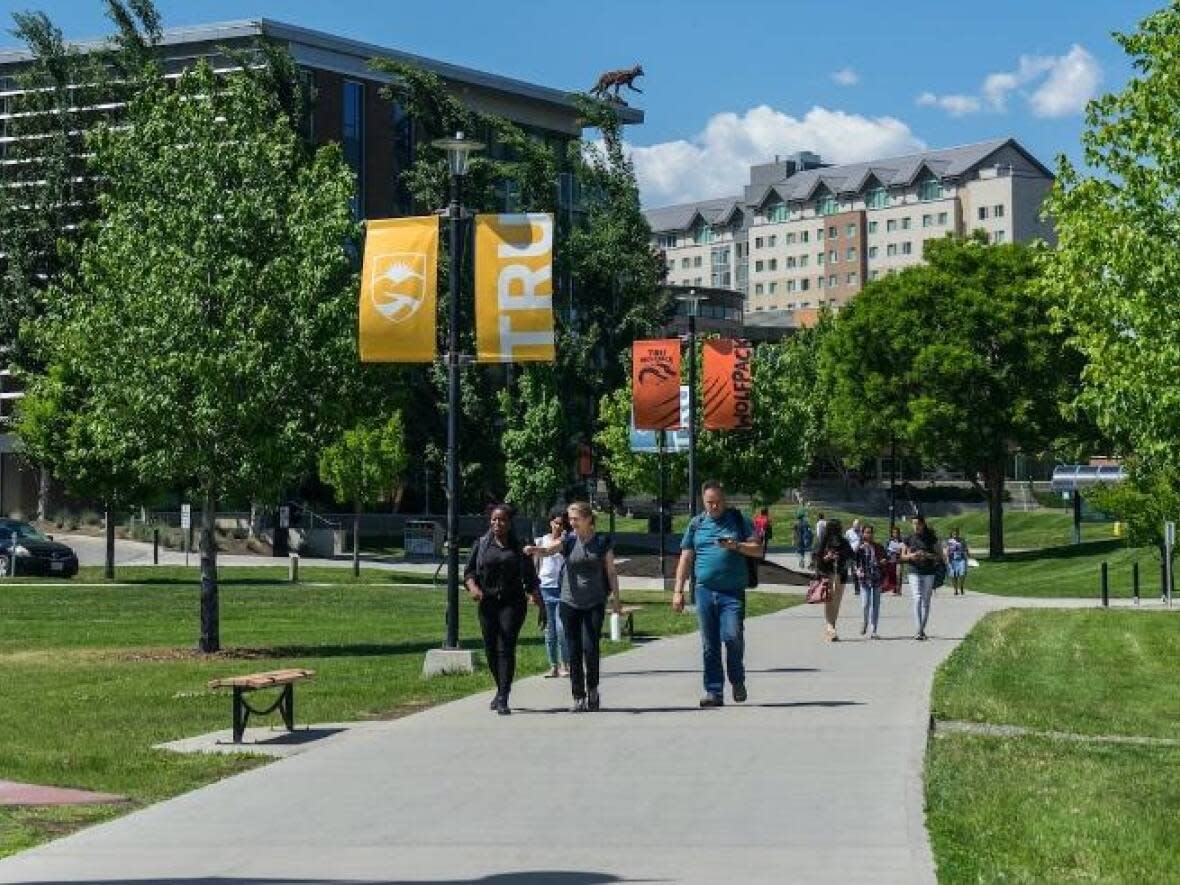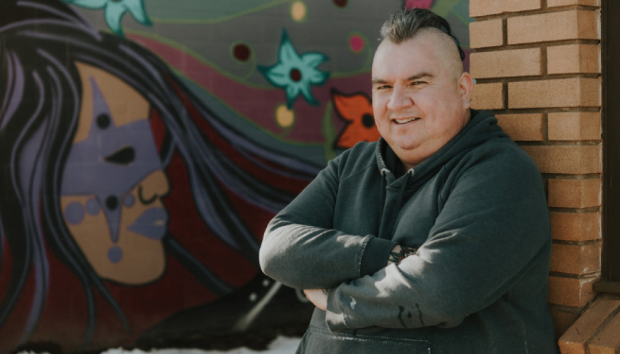Thompson Rivers University is phasing out its undergraduate fine arts program

Students, alumni and instructors are protesting Thompson Rivers University's (TRU) plan to phase out its bachelor of fine arts (BFA) program.
On Monday, the Kamloops, B.C.-based university told CBC News it has stopped enrolling new students to the four-year program, which they will be winding down over the next three years.
CBC News has asked why the program is being phased out, but did not hear back from the university by publication time.
Spokesperson Michelle Nordstrom said the university will launch new programs under the Faculty of Arts — which manages the Department of Visual Arts, under which the BFA program runs — and that current students will not be affected.
"We can confirm that this will not result in any job losses," Nordstrom said in an emailed statement.
"Our dedicated faculty and staff remain committed to providing the best possible arts education to our students."
That same day, TRU visual arts professor Darlene Kalynka started an online petition calling for the program to continue, which has since garnered more than 2,300 signatures.
"Many of us in the Faculty of Arts and the greater Kamloops community are in absolute disagreement with this decision, which disrespects the quality of graduates the BFA has produced," Kalynka wrote in the petition.
High enrolment of Indigenous students
TRU is one of two post-secondary institutions in the B.C. Interior region offering a BFA program, which includes courses in ceramics, drawing, painting, photography, printmaking and sculpture.
The program also works in partnership with the Kamloops Art Gallery to teach curating and exhibition installation courses for BFA students.
Local media outlet Kamloops This Week has reported that Rick McCutcheon, TRU dean of arts, said the program is being cut due to what he described as consistently low enrolment, as well as financial pressures due to the high costs of running the program.
Visual arts professor Don Lawrence argues the university should keep the program, which he says has benefited many Indigenous and international students.
"A lot of students at TRU came from groups that might be considered a bit marginalized, and they find their voice through visual arts," Lawrence said.
TRU communications professor Kathleen Scherf, former university president and chancellor, adds there is a high proportion of Indigenous students in the fine arts program.
"I would say that we're easily at 30 per cent," Scherf told host Shelley Joyce on CBC's Daybreak Kamloops.
"That's a place where Indigenous students can explore and express their culture, where we settlers can learn about it — that's a real act of reconciliation."

Secwépemc and Nlaka'pamux artist Chris Bose, who graduated from the program in 2005, says ending it would mean many young Indigenous people in Kamloops and neighbouring communities will have to move to Vancouver or further for undergraduate studies in fine arts.
"That's too far — it's too big a move from the reserves," said Bose, who now works as a youth program co-ordinator with the Kamloops Art Gallery. "The kids in small towns don't want to go to the city — it swallows them up.
"Now I can't believe they're doing that [cancellation] — it's ridiculous."
According to TRU, the case for ending an academic program will need to be presented to the university senate and board of governors, and there needs to be at least one meeting where people affected by the decision, including students and instructors, can voice their opinions.
McCutcheon told Kamloops This Week that those next steps are set to take place over the next six months.


